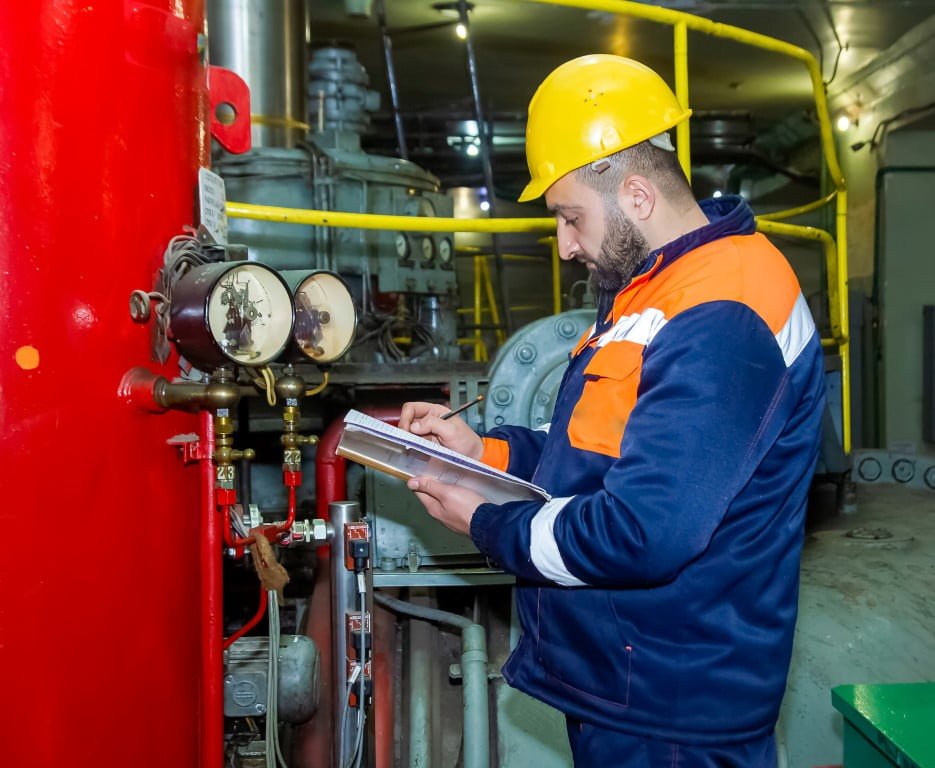For many years, boilers have been the central component of numerous industrial and commercial processes, offering vital power and warmth. Traditionally, boiler maintenance and monitoring relied mainly on human inspections and routine checks, often resulting in inefficiencies and unintended downtime. However, with digitisation’s introduction, the boiler maintenance and monitoring landscape has experienced a profound transformation. This blog examines how digitization plays a critical role in improving boiler dependability, safety, and efficiency.
The Evolution of Boiler Maintenance
Traditional Maintenance Methods
Historically, boiler maintenance was primarily reactive. To find and fix problems, technicians used physical checks, manual data collecting, and regular inspections. This technique has a few limitations:
- Inefficiency: Manual inspections are time-consuming and often miss early signs of potential issues.
- High Costs: Unplanned downtimes due to unforeseen failures can be costly in terms of both repairs and lost productivity.
- Safety Risks: Delayed detection of faults can lead to hazardous situations, posing risks to personnel and equipment.
The Shift to Digitalisation
Digitalisation marks a significant shift from these traditional methods to a more proactive and predictive approach. The efficiency, accuracy, and dependability of boiler maintenance and monitoring have increased with the integration of cutting-edge technologies like the Internet of Things (IoT), artificial intelligence (AI), and big data analytics.
Key Technologies Driving Digitalisation
Internet of Things (IoT)
The Internet of Things enables boiler systems to be connected to a network of sensors and devices that collect real-time data. These sensors monitor a variety of characteristics, including temperature, pressure, and humidity, providing constant information about the boiler’s operational state.
- Real-time Monitoring: IoT devices allow for 24/7 monitoring, ensuring that any anomalies are detected immediately.
- Data Collection and Analysis: Continuous data collection helps in identifying trends and patterns, facilitating predictive maintenance.
Artificial Intelligence (AI) and Machine Learning (ML)
AI and ML algorithms analyse the vast amounts of data collected by IoT devices to predict potential failures and optimise maintenance schedules.
- Predictive Maintenance: AI can predict when a component is likely to fail based on historical data, allowing for timely interventions.
- Optimisation: Machine learning algorithms can optimise boiler operations by adjusting settings in real-time to improve efficiency and reduce fuel consumption.
Big Data Analytics
Big Data analytics entails processing and analysing enormous datasets in order to obtain useful insights. In terms of boiler maintenance, it aids in analysing overall performance and finding areas for improvement.
- Trend Analysis: Analysing historical data helps in understanding long-term trends and making informed decisions.
- Performance Metrics: Big Data provides detailed performance metrics, enabling better decision-making and strategic planning.
Benefits of Digitalisation in Boiler Maintenance
Enhanced Efficiency
Digitalisation improves the efficiency of boiler maintenance and monitoring in several ways:
- Reduced Downtime: Predictive maintenance minimises unplanned downtimes by addressing issues before they escalate.
- Optimised Operations: Real-time data allows for continuous optimisation of boiler operations, improving overall efficiency and reducing fuel consumption.
- Resource Allocation: Digital tools help in better resource allocation by identifying critical areas that need attention, thus improving productivity.
Improved Safety
Safety is a paramount concern in boiler operations. Digitalisation enhances safety through:
- Early Fault Detection: Real-time monitoring and predictive analytics ensure that potential issues are detected early, reducing the risk of accidents.
- Automated Controls: Advanced control systems can automatically shut down the boiler in case of critical faults, preventing hazardous situations.
- Compliance: Digital records help in maintaining compliance with safety regulations and standards.
Cost Savings
The cost benefits of digitalisation are significant:
- Maintenance Costs: Predictive maintenance reduces the need for frequent inspections and repairs, leading to substantial cost savings.
- Energy Efficiency: Optimised operations result in lower fuel consumption, reducing operational costs.
- Extended Lifespan: Proactive maintenance extends the lifespan of boiler components, delaying the need for replacements.
Data-Driven Decision Making
Digitalisation provides a wealth of data that can be leveraged for informed decision-making:
- Performance Insights: Detailed analytics offer insights into performance metrics, helping in identifying areas for improvement.
- Strategic Planning: Historical data and trend analysis assist in long-term strategic planning and investment decisions.
- Customisation: Data-driven insights allow for the customisation of maintenance schedules and operational settings to suit specific needs.
Challenges and Considerations
Integration with Legacy Systems
One of the most challenging aspects of digitising boiler maintenance is integrating new technologies with existing old systems. To guarantee smooth integration while minimising disruption to operations, careful planning and investment are required.
Data Security
Data security is becoming an increasingly important concern as digital tools are used more frequently. Implementing strong cybersecurity safeguards is critical for protecting sensitive data from potential attackers.
Skill Development
The shift to digitalisation involves the development of new skills. In order to provide the workforce with the skills they need to run and manage digital systems, training and development programmes are essential.
Initial Investment
While digitalisation offers long-term benefits, the initial investment can be substantial. The price of system integration, training initiatives, and new technology are all included. Nonetheless, the expense is frequently justified by the return on investment (ROI) in terms of cost reductions and efficiency advantages.
Conclusion
The digitalisation of boiler maintenance and monitoring transforms how enterprises manage their vital infrastructure. Employing cutting-edge technologies like IoT, AI, and big data analytics allows businesses to save costs, increase productivity, and improve safety to never-before-seen levels. Even though there are obstacles to overcome, investing in digitisation is beneficial because of its long-term rewards. As technology advances, the future of boiler maintenance appears optimistic, with smarter, more efficient, and safer operations on the horizon. In today’s fast-paced economic scene, embracing digitisation is a must, not an option, for maintaining competitiveness.

